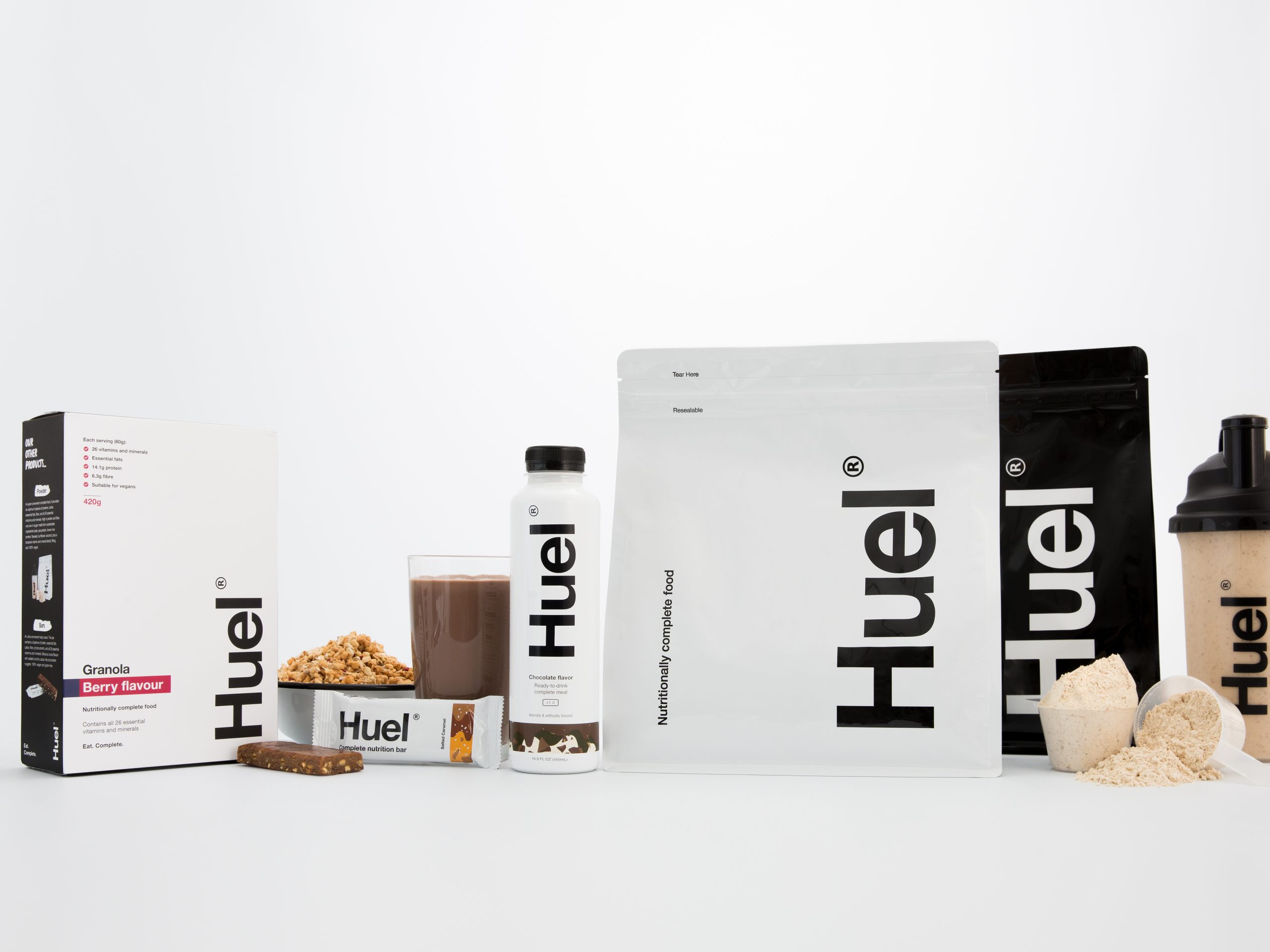- Huel is a food-powder startup that has raised £20 million and built its team to 100 people in five years, even as customers continue to adjust to the concept of the core product.
- The company has outsourced functions like order handling and manufacturing to keep headcount low and manage costs.
- Recruiting great talent has been a major focus for the founders, and an investor from Highland Europe said that the Huel team is inspired by its sense of mission.
- This article is part of a series on growing a small business, “From 1 to 100.”
Love it or hate it, food-powder startup Huel is winning over a group of people looking to change their eating habits in an effort to become healthier and more environmentally conscious.
Founded in 2014, Huel’s vegan powder is designed to give you all the nutrients you would get from a well balanced meal in one drink. It’s pretty straightforward: You simply add two to three scoops of Huel powder to around 500ml of water, give it a shake, and away you go.
“It contains all the essential nutrients in a single product,” said Julian Hearn, Huel’s cofounder, “So that’s your vitamins, minerals, proteins, fats, carbs, fibre, and phytonutrients.” All of the products have been developed by nutritionist James Collier and are made from a blend of oats, rice, peas, coconut, and flaxseed, as well as a mix of vitamins and nutrients.
Huel’s main rival is US firm Soylent. Both are fighting it out to be the king of the so-called meal replacement market.
Not everyone is a fan of these meal replacement products - some people find the protein shake-like powder hard to mix. No matter how much you shake it, there will always be a few small lumps. Huel also sells snack bars and ready-made meal shakes.
On paper, things seem to be going well for Huel. The company claims to have sold "90 million meals" to customers in around 80 countries. For context, one bag of Huel has enough powder to make 17 meals, with each meal working out at around £1.50.
"The largest country for us now I think is going to be the USA and the UK will be a close second," Hearn said.
Huel's revenues stand at around the £60 million mark and the company was profitable for the first three years of its life. It made a loss last year, but the company is expecting to be profitable again in 2020.
Huel has just hit the 100 employee milestone, with around 75 of those based at the company's headquarters, located in the small English market town of Tring in Hertfordshire.
There are satellite offices in London and Birmingham due to talent reasons, and there's also an office in New York with around 10 people.
"I'm not sure recruitment has been the hardest thing for us," Hearn said. "We've been very lucky…being based outside of London means that competition in this area is a lot lower than it would be for talent in London, which means we're able to cherry pick the people that we want."
Hearn said that Huel has been able to keep the team size relatively small by outsourcing all of the order handling and manufacturing. It uses manufacturing plans in Devon, the North of England, and another in the US.
"We are effectively head office function only," he said. "That allows us to scale without taking on huge headcount, which is not always attractive."
Investors pumped £20 million into Huel last October in a round that was led by Highland Europe, which has also backed the likes of travel-booking app GetYourGuide and file sharing platform WeTransfer. Hearn said a number of "big food manufacturers" have also offered to buy the business.
Stan Laurent, a venture capital investor at Highland Europe, told Business Insider that Huel has a strong highly-engaged community and and "an increasingly global direct-to-consumer distribution model" that gave him faith in the market potential.
"The proof that this was all working was in the numbers, with high growth, good customer loyalty, and sound economics. I felt excited about helping the team who was clearly inspired by their mission and determined to innovate to succeed in building the global leader in this promising new food category."
